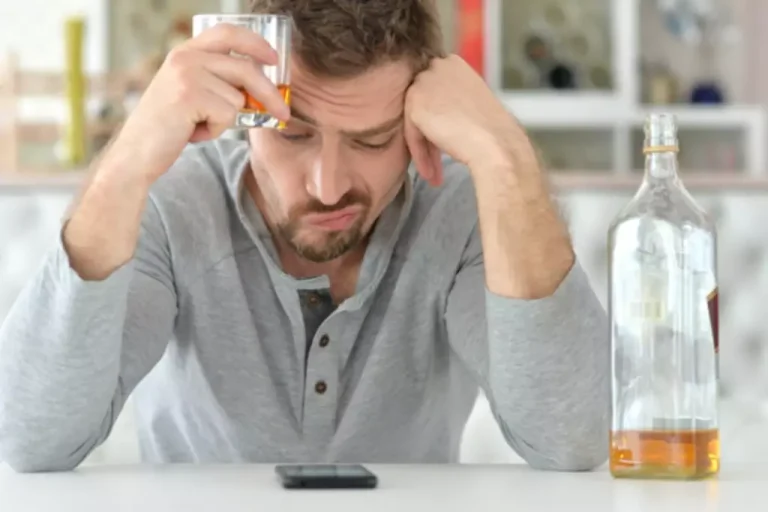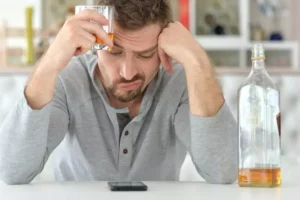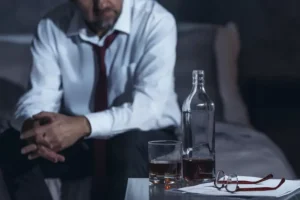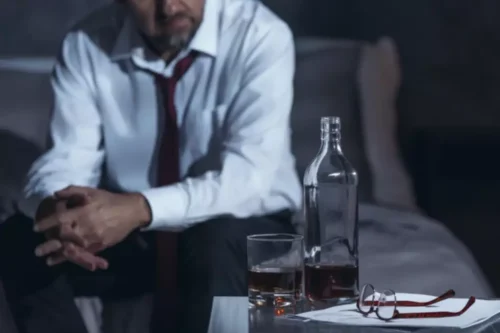Withdrawing from Benzodiazepines: Symptoms, Safety, and Treatment

Once the hallucinations, which seem real at the time, are recognised as “merely” hallucinations, they quickly become less alarming. They do not herald the onset of madness; they are simply instances of benzodiazepines playing tricks on the brain which will right itself in time. A good mentor can usually reassure and “talk down” a person suffering from benzodiazepine withdrawal-induced hallucinations. Your doctor may have views on whether it is appropriate for you to stop your benzodiazepines. Some doctors, particularly in the US, believe that long-term benzodiazepines are indicated for some anxiety, panic and phobic disorders and some psychiatric conditions. However, medical opinions differ and, even if complete withdrawal is not advised, it may be beneficial to reduce the dosage or to take intermittent courses with benzodiazepine-free intervals.
- This prescription drug is used to treat anxiety, panic attacks, and insomnia due to anxiety or situational stress.
- As discussed in Chapters I and II, benzodiazepines disrupt the function of many neurotransmitters and hormones and depression could be the result, for example, of low serotonin activity combined with the stress of withdrawal.
- While stimulant withdrawal is typically not life-threatening, it can be psychologically distressing.
- Symptoms of alcohol withdrawal range from mild (e.g., anxiety, tremors, sweating) to severe (e.g., seizures, hallucinations, delirium tremens).
- For instance, the available dosage formulations for Ativan 0.5 mg and Xanax 0.25 equates to Valium 5mg.
What is the most important information I should know about benzodiazepine withdrawal?
Like other benzodiazepine withdrawal symptoms, these feelings resolve in time and should not be interpreted as abnormal or crazy. People with benzodiazepine tolerance may take supratherapeutic doses because the recommended range no longer provides relief for their symptoms. The higher dose may help ease your symptoms, but it can also increase your risk of overdose and severe withdrawal symptoms. These factors don’t guarantee you’ll have severe withdrawal symptoms, but they can increase your vulnerability. So, your doctor may recommend a slower taper schedule as a safety precaution.

Panic attacks
Thus the symptoms suffered by many long-term users are a mixture of adverse effects of the drugs and “withdrawal” effects due to tolerance. As described in Chapter 1, long-term use of benzodiazepines can give rise to many unwanted effects, including poor memory and cognition, emotional blunting, depression, increasing anxiety, physical symptoms and dependence. All benzodiazepines can produce these effects whether taken as sleeping pills or anti-anxiety drugs. The social and economic consequences of chronic benzodiazepine use are summarised in Table 3 (Chapter 1).
Prescription drug withdrawal and detox
Individuals may find they are intolerant of certain foods although this is not usually a true allergy. If in doubt, get the advice of a reliable and unbiased nutritionist, but in general stick to a normal healthy diet without food fads. Before diets became “fashionable” thousands of people successfully came off their benzodiazepines in many different countries with widely varying dietary habits without restriction – and this continues today. If sleep is really a problem, a small dose of a tricyclic antidepressant with sedative effects (see antidepressants, above) is a possible option. Alternatively, an antihistamine with sedative effects (e.g. diphenylhydramine Benadryl, promethazine Phenergan) may be used temporarily. Neither antidepressants nor antihistamines act by the same mechanisms as benzodiazepines.

It is as if the nervous system has a “memory” of the withdrawal(s) and/or damage from a substance like benzodiazepines. This “memory” of prior withdrawal(s) and/or damage somehow remains “imprinted” within the nervous system. Indeed this process may well be the etiology of the increasing difficulty persons face the longer they continue to use benzodiazepines, even if only episodically. Medically-supervised detoxes can significantly reduce the risk of severe withdrawal symptoms and relapse.

Benzodiazepine Detox Medications
This type of professional supervised medical detox can benzodiazepine withdrawal significantly reduce the risk of you having severe withdrawal symptoms (such as seizures) and relapse. It’s also helpful to have psychological support to manage cravings and PAWS. Although the above symptoms are often made worse by stress, they are clearly not simply due to anxiety.
Other ways to manage anxiety
Psychotherapy can help you understand the root cause of your substance abuse problems. It can also help you learn to identify psychological triggers that may cause you to relapse so that you can avoid them in the future. No content on this site, regardless of date, should ever be used as a substitute for direct medical advice from your doctor or other qualified clinician.
The mechanisms of these bizarre symptoms are probably similar to those which cause delirium tremens (hallucinations, classically of pink elephants or rats, in the “DTs” of alcohol withdrawal). A characteristic feature of benzodiazepine withdrawal is a heightened sensitivity to all sensations – hearing, sight, touch, taste and smell. One lady had to stop all the clocks in the house because their ticking sounded unbearably loud; many have had to don dark glasses because ordinary light seemed dazzlingly bright. Some find that the skin and scalp becomes so sensitive that it feels as if insects are crawling over them. Heartbeats become audible and there may be a hissing or ringing sound in the ears (tinnitus – see below). Many people complain of a metallic taste in the mouth and several notice strange, unpleasant, smells which seem to emanate from the body.
- Many factors must be considered in establishing a deprescription plan, but a detailed best practices evidence-based tapering guide that is tuned specifically to benzodiazepines can be found HERE.
- Emerging research also suggests acceptance and commitment therapy (ACT) could also have benefits during benzodiazepine withdrawal.
- A slow tapering regimen, in my experience, is easily tolerated, even by people in their 80s who have taken benzodiazepines for 20 or more years.
- Life-threatening respiratory depression can be seen with large oral ingestions with or without coingestants.
This type of therapy can help you challenge and reframe unhelpful beliefs and behaviors and replace them with more productive ones. In addition, over half Alcoholics Anonymous of the survey respondents said benzodiazepines’ side effects or withdrawal symptoms caused them to consider suicide. A variety of withdrawal schedules from several benzodiazepines are illustrated on the following pages. Schedules such as these have worked on real people, but you may need to adapt them for your own needs.

There are many non-pharmacological techniques for helping people with anxiety. Some of these are listed below, but it is beyond the scope of this booklet to give details of each technique or to mention all of them. None of them are essential for everybody coming off tranquillisers, but can be helpful for those having difficulty. Medical experts continue to debate the best way to taper these medications, so there’s no single agreed-upon approach. After a month or so, your brain gets used to sending off more neurotransmitters just so some can get past the benzodiazepine blockade.

![Daniël Klijn [LittleDean]](http://www.littledean.nl/wp-content/uploads/2018/10/cropped-Littledean-LONG-wit-1-1-1.png)